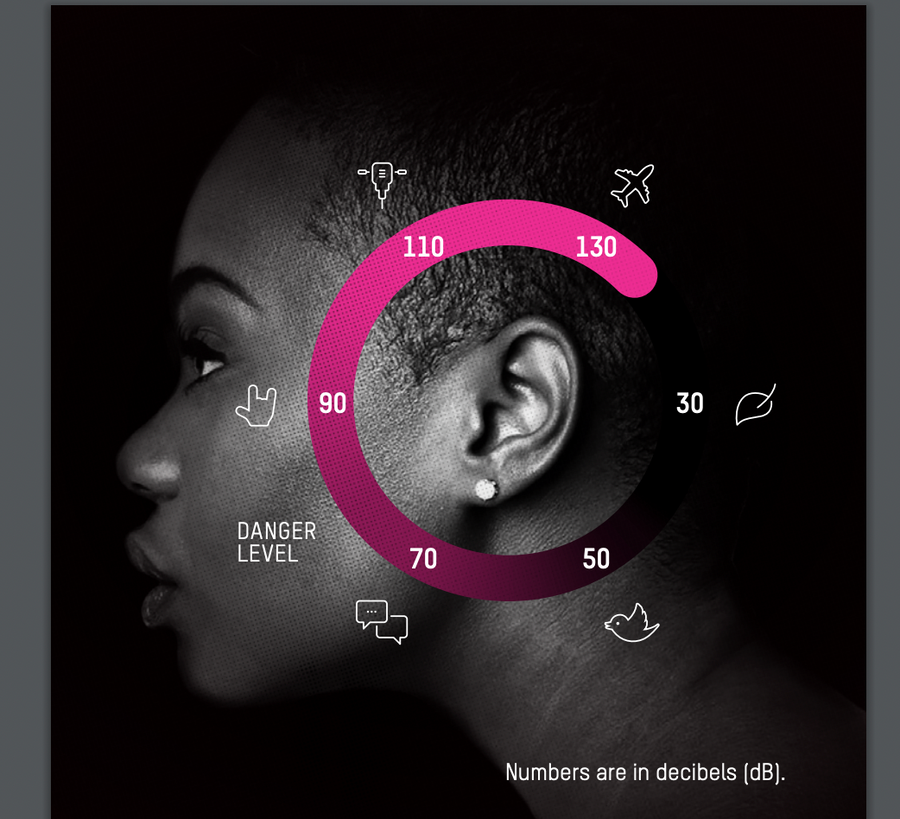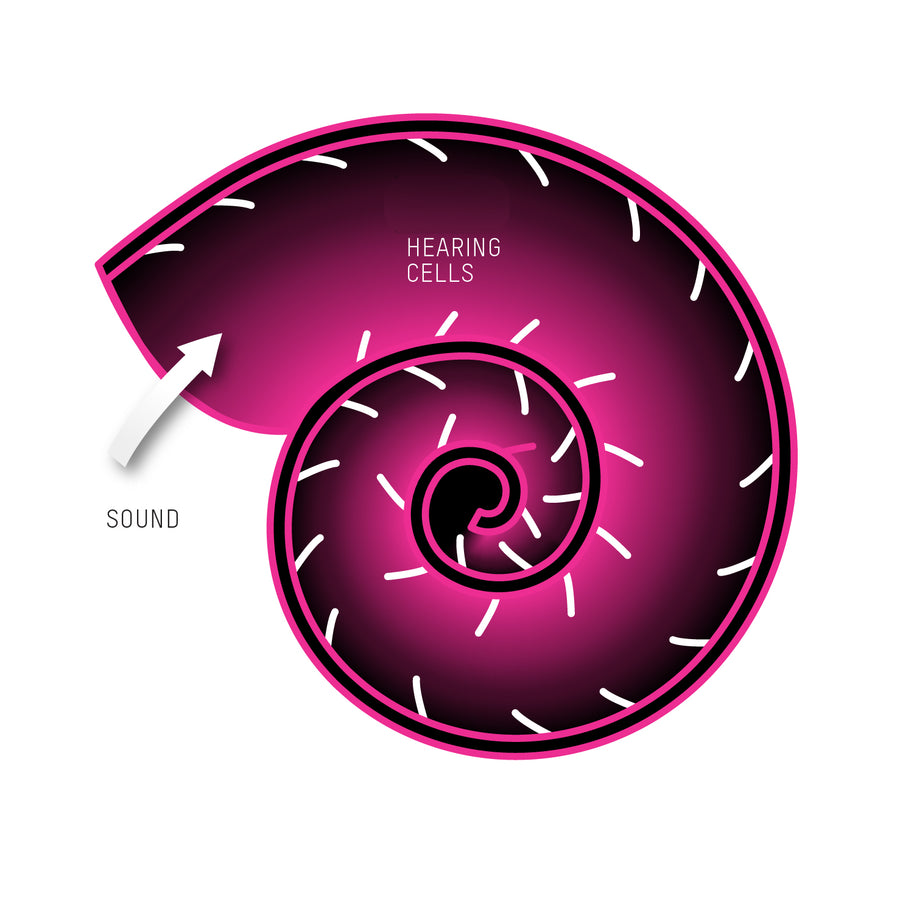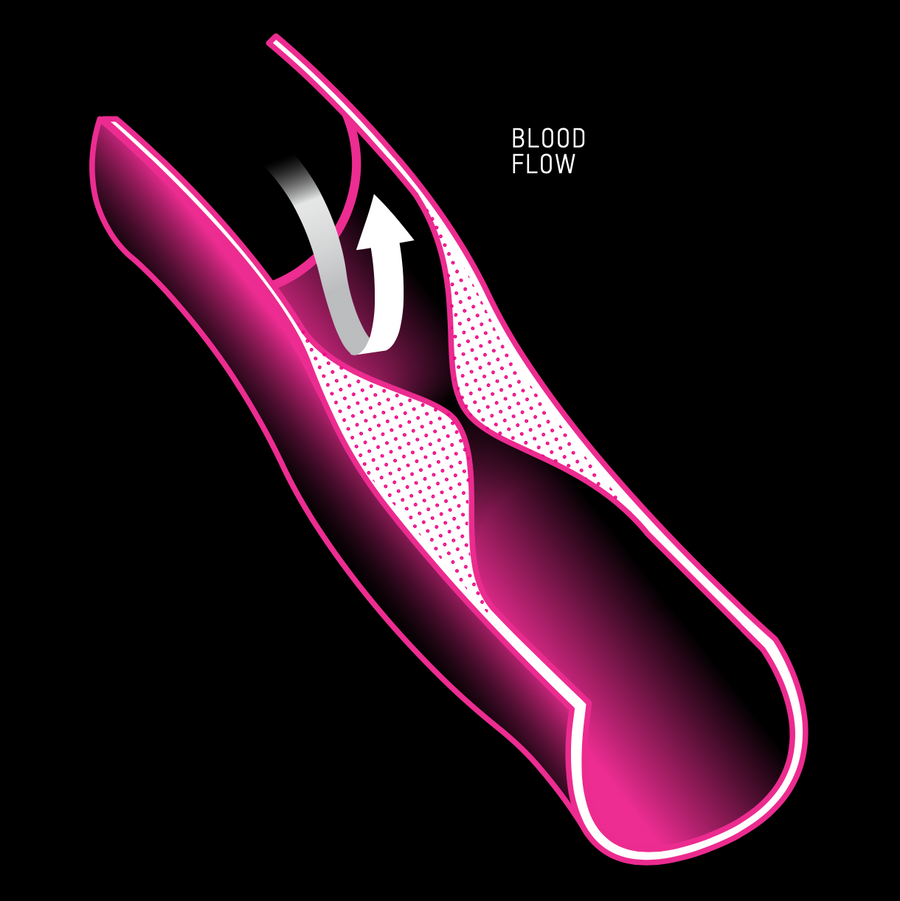SNHL | NIHL | ARHL
Hearing loss
The Organ of Corti in the cochlea houses about 12,000 outer hair cells (OHC) and 3,500 inner hair cells (IHC). OHCs amplify sound vibrations and separate them into their various frequencies. IHCs convert the [delete extra space] vibrations into electrical signals and release neurotransmitter impulses onto roughly 30,000 auditory nerve fibers called spiral ganglion neurons. This chain of mechano-electrical transduction, synaptic transmission, and conduction to the brain occurs constantly and within microseconds to milliseconds. Damage to any link in this sensitive auditory system disrupts the chain, causing hearing loss and related incurable neurological disorders. Humans have a pair of these.

Young ears are at risk
Life is loud
Billions of listening hours now flow through earbuds and amplified venues. A 2022 report from the British Medical Journal estimated that more than 1 billion adolescents and young adults engage in unsafe listening. The Centers for Disease Control echoed concerns in the U.S.

Preventive care for hearing
Protecting against irreversible SNHL damage
Unlike other cells in our bodies, auditory nerve cells don’t regenerate. Damage to these cells is biochemical, with consequences that extend to neurological health, potentially leading to hearing and cognitive disabilities. Preventive care is crucial in protecting against irreversible SNHL damage. Addressing risk factors early, such as exposure to loud noises and managing chronic conditions helps preserve auditory function and maintains overall hearing health, reducing the likelihood of long-term hearing loss.

Sensorineural Hearing Loss
Role of Free Radicals in SNHL
The science of free radical biology is fundamental in understanding SNHL. Free radicals are oxidative molecules crucial for cellular energy production in the mitochondria, essential for normal cell function. However, their instability can lead to oxidative stress. Antioxidant systems within cells work to neutralize and eliminate free radicals through the bloodstream, preventing them from causing restricted blood flow called ischemia reperfusion injury, similar to a stroke or heart attack, but in the inner ear. Understanding this process was key to developing strategies for SNHL prevention and care with ACEMg.
Frequently asked questions
It’s difficult to know if your use of earbuds or headphones is damaging your hearing. Consumer tech for sound level monitoring is just starting to appear on phones, which helps if you happen to be using earbuds or headphones calibrated with a phone. Otherwise, it’s virtually impossible to know if the combination of listening time and volume are within safe limits.
Consider using Soundbites if you’re concerned about avoiding potential hearing injury from any personal listening devices used for long periods or at loud volumes, including earbuds, headphones, or even hearing aids. But please think of Soundbites as preventive care insurance, and not as a free pass to take risks by turning up the volume.
Noise cancellation technology works well to reduce the loudness of noise entering the ear, making it easier for the brain to separate wanted signals from unwanted ones, which reduces strain on the auditory cortex. However, you’re right to be concerned. World noise is a major contributor to hearing loss, and the problem is increasing rapidly. Noise cancellation technologies can be very effective at reducing or blocking damaging noise levels, but it’s impractical to keep your ears plugged all the time with any kind of noise protection device. We encourage using hearing protection devices in addition to Soundbites because Soundbites works when not you’re not wearing hearing protection, and it provides an extra cushion of safety when you are. Soundbites is not intended to replace hearing protection devices, nor is it intended as a free pass to take risks with your hearing.
Unfortunately, it is increasingly normal to suffer hearing loss earlier in life today. So-called age-related hearing loss (ARHL) and noise-induced hearing loss, or NIHL, are biologically related, and it’s often difficult to tease the two apart. The evidence is clear: listening to loud music clearly contributes to NIHL, and increases the risk that ARHL will start at an earlier age.
But listening to loud music is not the only cause of NIHL. A majority of the world’s population now lives in cities, and cities are noisy, adding to the noise burden, so hearing loss is happening to many more people earlier in life. The U.S. is 80% urban, and it’s expected that 70 percent of the estimated world population of 10 billion will be urban by 2050. If trends continue without interventions like Soundbites, it's estimated that 25% of the world’s population will be hearing impaired, and 10%, or 1 billion people, will be functionally deaf within the next three decades.
That’s likely, according to numerous anecdotal case reports and independent clinical assessments, but there is no way to know in advance. Hearing function is affected by a wide variety of factors including your age, genetics, lifestyle, life quality, and nutrition. With certainty, we can say that at any age, Soundbites helps your hearing cells work the way they’re supposed to work, free of oxidative stress that compromises normal auditory function and damages hearing.
Independent clinical evidence indicates that improvement in hearing can be measured objectively by an audiologist within three months of taking Soundbites daily. You may perceive differences that accompany reduction of oxidative stress in a shorter time if your ears are under a high degree of oxidative stress, but we cannot predict that you will perceive any differences in your hearing or tinnitus symptoms, or improvement in your hearing sensitivity; there are too many variables.
